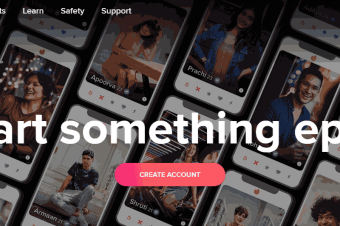Smart Tips Coaching For Managers
Tags: Coaching
Learning to coach your team members to elevate their work and lives.
Last updated 2022-01-10 | 4.5
- Discover the many doorways to finding opportunities to create a coaching relationship- Explore what traits are coach-able (and what is NOT coach-able)
- Adapt your coaching style to fit your partner
What you'll learn
* Requirements
* Willingness to help others develop.Description
Our goal in this course is to become a manager who is also an exceptional coach. There are incredible benefits to teams and companies that come from great coaching. And you will gain a personal sense of growth and purpose from becoming a great coach who can help those around you grow and develop.
You may be starting this journey with a strong interest in developing others, and with good instincts like empathy, and an ability to listen deeply. But wherever you are now in your journey to become a great coach, we’re going to do this together, one small act of leadership at a time.
When you learn to be a coaching manager, you become less interested in your own personal power and more interested in helping others be happy and thrive at work. You've worked hard to get to where you are – now it's time to shift to helping others.
In this course you will learn:
To prepare for coaching by developing the mindset of being grateful to empower others
To recognize What is coachable (not everything), and Who is coachable (anyone who is willing)
To use successful coaching approaches and models in your work
To leverage powerful questions to help your partner achieve their goals
To give meaningful assignments to spur growth
Who this course is for:
- New and experienced managers and team leaders who want to develop others.
Course content
3 sections • 30 lectures
Grateful to Coach Preview 03:31
Developing others is not about giving away your power - it's about empowering others. The definition of empowerment is to make someone else stronger and more confident, especially in controlling their life and their work.
Making Time for Coaching Preview 05:53
When you spend the time developing your employees through coaching, it will pay off in dividends, with people around you who are more capable, more invested in their work, and who contribute more to the culture of your company.
Doorways to Coaching Preview 03:57
Coaching typically starts one of two ways:
Either the employee seeks out coaching from you or
You, the manager initiates the coaching process with someone on your team
We will also focus on the distinction between Coaching for Performance (a.k.a. Feedback) and Coaching for Growth.
What's Coachable? Who's Coachable? Preview 04:58
So WHO is coachable? With the exception of those who don’t want to do the work or show no signs of progress whatsoever – most everyone can benefit from coaching.
The next questions is, WHAT is coachable? Not everything. Some parts of every person are harder to change than others, and as a coach, you need to understand where you CAN make a difference.
So What is Coaching? Preview 04:34
Coaching is a partnership that helps a person achieve goals related to performance, career, or change. As a coaching manager, your role is to maximize the potential of others. And this potential is discovered BY the person you are coaching!
Only You Can Create a Coaching-Friendly Environment Preview 03:39
If you want people to be open to coaching, they must feel safe, encouraged, and appreciated. Managers can only do this when they are self-aware and feel psychologically safe in their own roles.
Be Style Conscious Preview 05:24
If you want to be a good coach, you'll have to decipher the styles of others so you can adapt your style. These tips are for those instances when all you have to go on are your perceptions and the words and actions of others around the person you are coaching.
Cultivate the Coaching Process Preview 06:06
The most active and creative phase of coaching is when you coach the process of goal achievement. This means suggesting assignments, activities, experiments, even small behavioral changes that your coaching partner tries and then talks to you about. You listen, you ask questions. You may offer some feedback.
Assess Your Coaching Readiness Preview 04:13
You can probably guess what's required for coaching - its readiness. Listening, questioning, and goal setting is a good start… but there are other skills and knowledge that are very specific to the coaching practice.
Do You Really Need a Contract? Preview 03:05
With the workplace becoming more and more casual, you might think that having a coaching contract is a bit formal. But would you accept a job without some sort of contract? Or hire a builder to work on your house? Of course not.
Some things are best documented so that both parties know what will be done and who will do it.
At the Core of Coaching is Trust Preview 04:25
Coaches build trust when they:
have consistent, predictable behavior
communicate a sense of genuine curiosity
have core competence in their own job and role
Dealing with Sensitive Matters Preview 06:10
When you're coaching others, you'll probably encounter feelings of discomfort or resistance. Try not to run away from these moments. These tips will help you to be skillful in how you handle these emotions.
The GROW Model of Coaching Preview 05:03
In coaching, a common model is GROW which stands for Goal, Reality, Options, and Way Forward.
Understanding the Experiential Learning Cycle Preview 03:36
It's important that your partner experiment and try new behaviors. That's how real, sustainable change happens.
Understanding the Experiential Learning Cycle will help you coach as you help people move from Concrete Experience…to Reflective Observation…to Abstract Conceptualization…to Active Experimentation.
Opening a Coaching Session Preview 03:58
Even if your first coaching session only covers the fundamentals and ends with an action plan to discuss the coaching goals later – that's really okay. It's better to ease into the relationship and avoid rushing.
Assessment Do's and Don'ts Preview 05:37
Assessments are often used in the coaching process to reveal insights that lead to self-awareness. Used well, assessment data can help support goal achievement.
The Skill/Will Matrix Preview 03:05
Learn how to coach people with different combinations of both skill and will. This builds out your coaching toolkit and targets the activities that fit best with your partner’s needs.
Active Listening: Verbal and Nonverbal Preview 03:50
Throughout the coaching process, you’ll ask a lot of questions. But don’t forget that there’s a second part to this equation, especially with all of the different open-ended questions you’ll be asking: you need to listen – REALLY LISTEN – to the responses.
The Power of Questions Preview 05:18
Hopefully by now you understand that questions are the crux, the cornerstone, of coaching. Different kinds of questions serve different functions throughout the coaching journey, but the bottom line is that questions invite your partner to discover the answers themselves.
Broadening Awareness Preview 05:04
You know what it feels like when you have an "A-ha!" Moment? Like you realize that your current pattern of behavior that's preventing you from moving forward. Not every "A-ha!" Is life-changing, but during the coaching process it's likely to happen a few times. You can guide someone to a place where they reach new levels of awareness.
Coaching Assignments I: Reflecting and Writing Preview 06:09
There comes a time for "fieldwork." To try it out new ideas and behaviors!
These tips will help you frame good Reflection and Writing assignments for your partner.
Coaching Assignments II: Action and Experimentation Preview 03:15
There comes a time for "fieldwork." To try it out new ideas and behaviors!
These tips will help you frame good Action and Experimentation assignments for your partner.
Feedback: It's Not Coaching Without It Preview 06:56
Do your team members want your feedback during the coaching process? You bet they do, especially if it's given in the spirit of helping them grow – not as a judgment or criticism.
Recognizing Progress Preview 04:46
In a coaching situation, YOU are a kind of GPS navigation system to help your partner recognize the progress they’ve made using the tools at your disposal: questions, observation, and feedback.
Closing the Coaching Relationship Preview 03:55
As you began your relationship with warmth and curiosity, end in the same way. Invite your partner to check in with you and let you know how things are going. Tell them you'll check in with them as well! Convey your support.
Feeling Stuck Preview 05:29
Both parties in the coaching relationship will wind up feeling a bit "stuck" from time to time. Insight, awareness, and change – they don't come easy. But don't worry – feeling that "something isn't working" is a signal. Recognize that signal and take your time to move in the right direction.
Accountability Issues Preview 03:57
Sure, there are legitimate reasons for missing meetings and failing to complete assignments. Work and life pressures can take priority. Without making a big deal out of it, you can get things back on track.
Protecting Boundaries Preview 03:47
In the coaching profession, overstepping a boundary is considered unethical and it can jeopardize the success and well-being of the person being coached. The PURPOSE of the relationship sets the boundary – that purpose is a laser focus on the individual’s specific goals and professional development.
The Impact of Work-Life Stress Preview 04:40
Conflicting priorities such as caring for family members, managing health problems, and dealing with difficult relationships… these can all create stress and fatigue for everyone. When you coach, you can't ignore these factors that have such a great impact on the overall health of others.
The Reluctant Coaching Partner Preview 03:03
Not everyone is eager to be coached. Don't take it personally – there are many legitimate reasons why someone might say "not now, maybe later."
These tips will help you either get the relationship back on track, or recognize when it's time to let go and take a break.








 This course includes:
This course includes:














